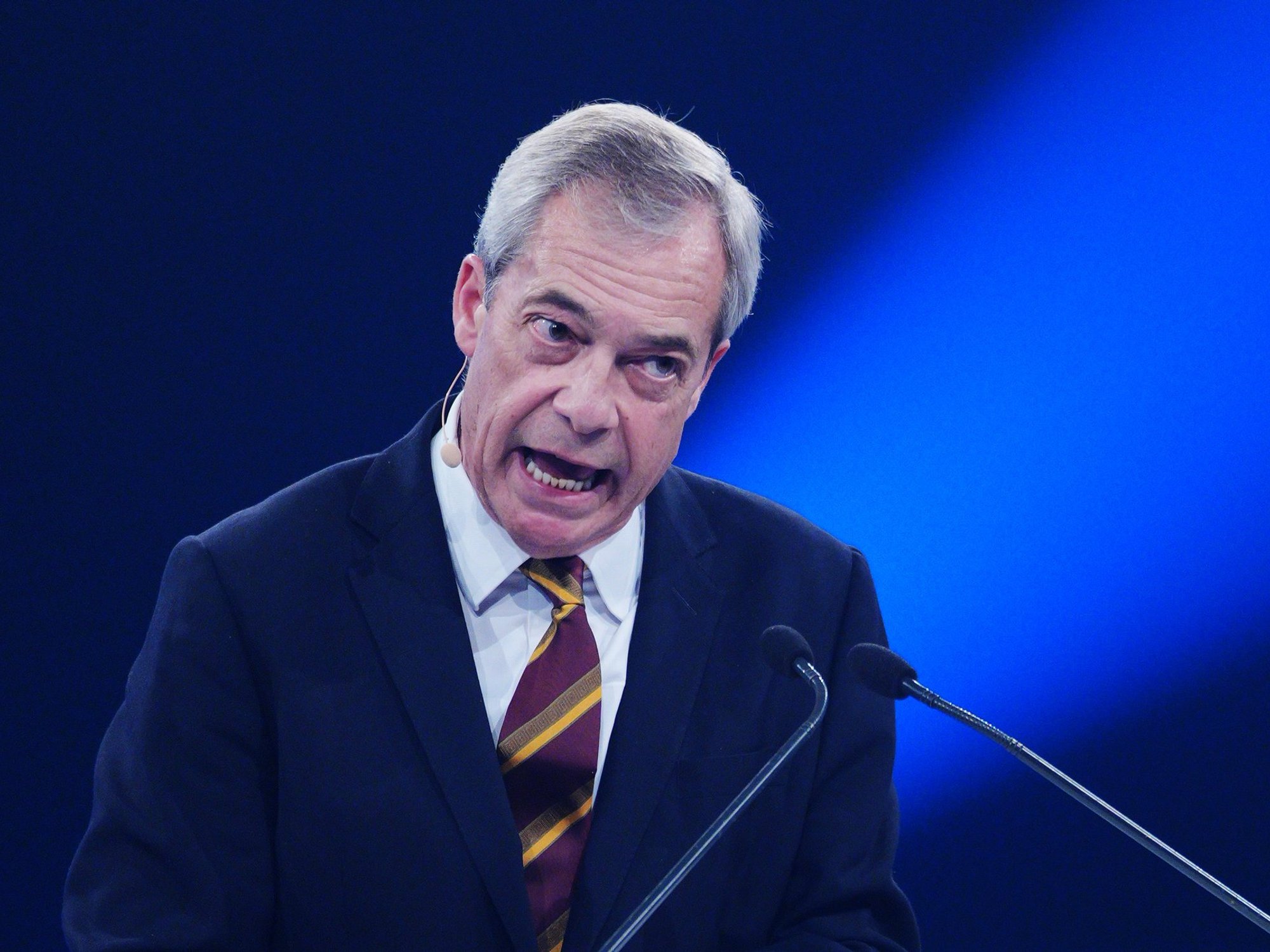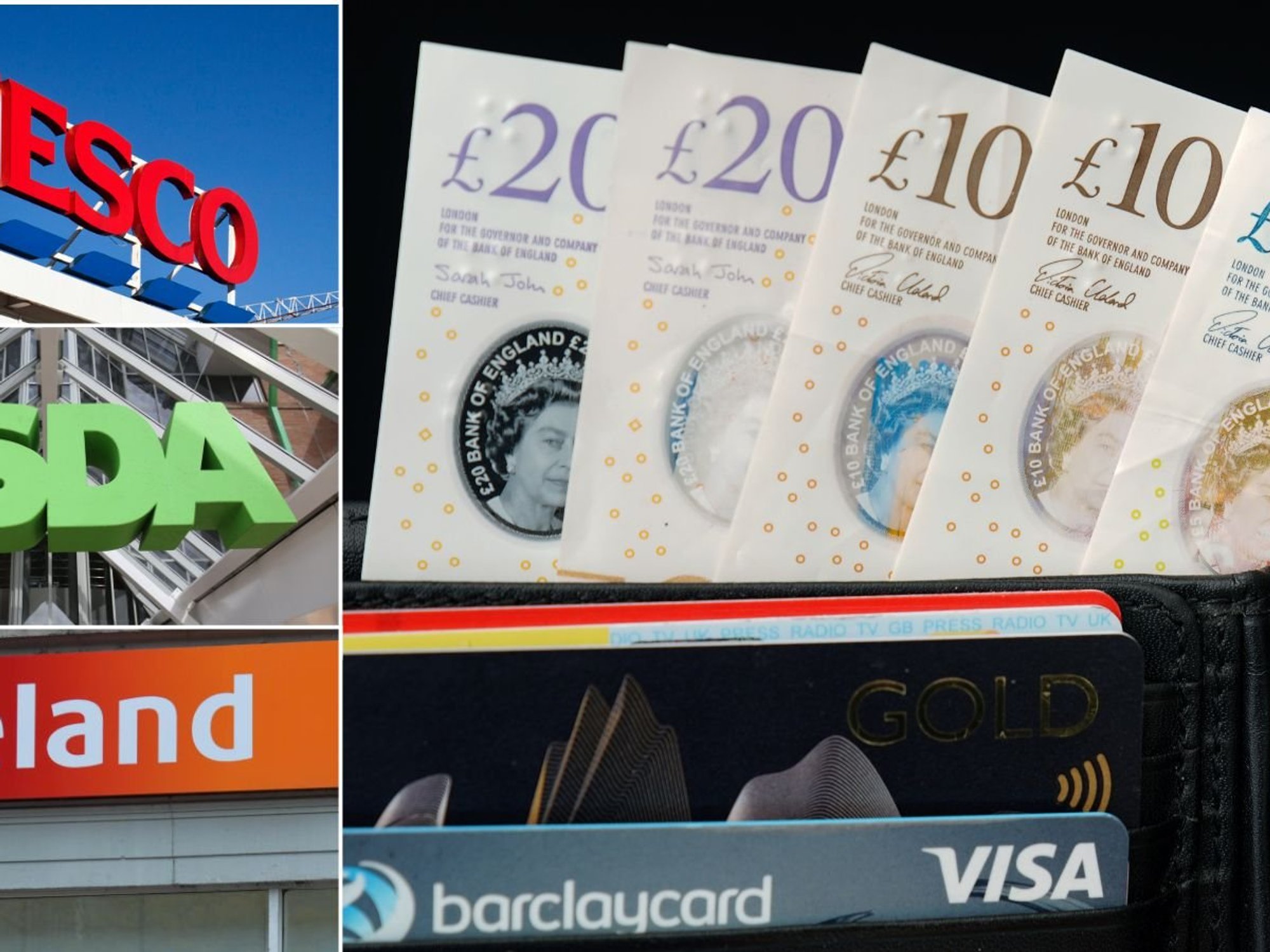UK facing the highest level of inflation of any major economy this year, OECD warns
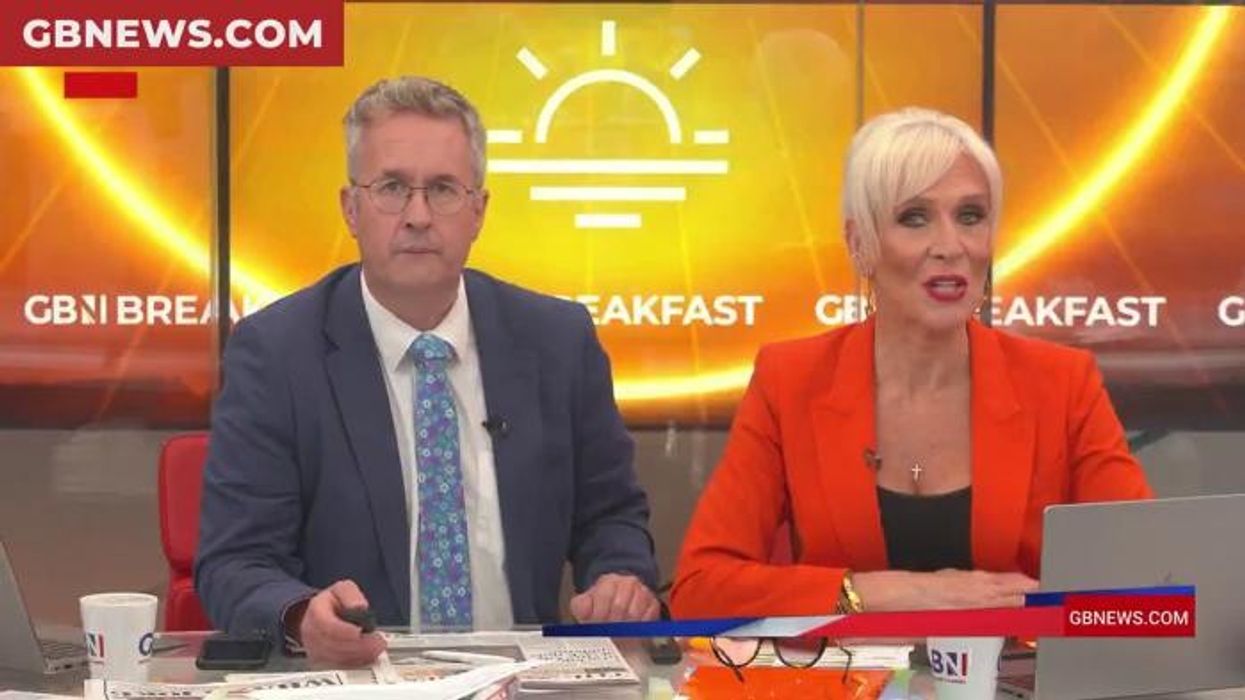
GDP growth falls in blow for Rachel Reeves - WATCH |
GB News

Britain faces the highest inflation rate in the G7
Don't Miss
Most Read
Britain is braced for the highest inflation of any major economy this year, experts have warned piling further pressure on households already struggling with rising costs.
Fresh forecasts suggest the squeeze on family budgets will last well into 2026.
The Organisation of Economic Co-operation and Development (OECD) said the UK’s “tighter fiscal stance”, which is higher taxes and reduced government spending, would weigh heavily on growth, which is set to slow from 1.4 per cent this year to just one per cent in 2026.
Economists also predict inflation will surge, leaving Britain with the highest level among the G7 group of advanced economies in 2024.
Inflation is now expected to hit 3.5 per cent in 2025, 0.4 percentage points higher than previously forecast, and remain above the Bank of England’s two per cent target in 2026, at 2.7 per cent, with soaring food prices continuing to push up living costs.
TRENDING
Stories
Videos
Your Say
The warning comes just weeks before the Government's autumn Budget in November, with the Chancellor facing calls to raise taxes further in order to balance the public finances.
Chancellor Rachel Reeves said the figures “confirm that the British economy is stronger than forecast – it has been the fastest growing of any G7 economy in the first half of the year”.
She added: “But I know there is more to do to build an economy that works for working people – and rewards working people. That is what I’m determined we deliver through our plan for change.”
Official data shows the UK economy expanded by 0.7 per cent in the first quarter of the year and by 0.3 per cent in the second.
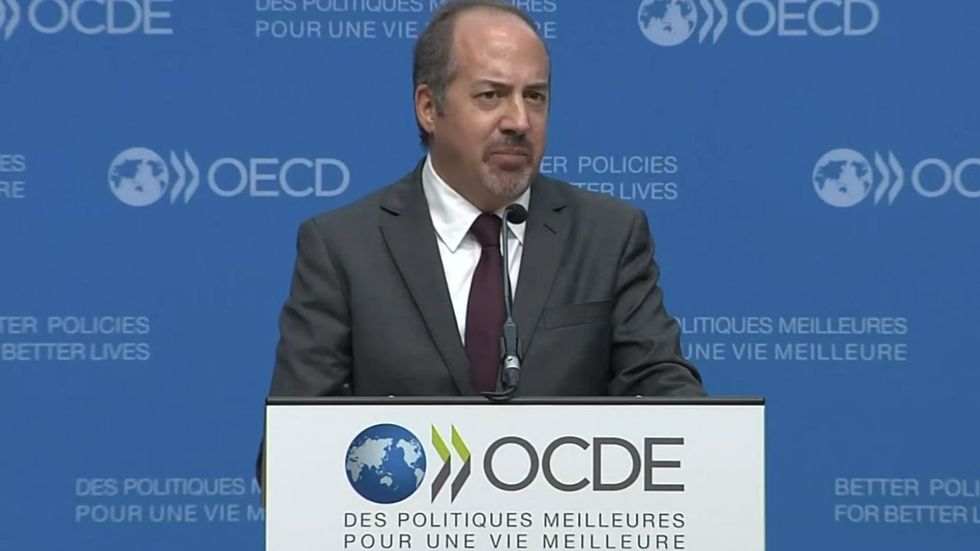 UK facing the highest level of inflation of any major economy this year, OECD warns |
UK facing the highest level of inflation of any major economy this year, OECD warns | GBNEWS
The OECD warned that global growth will weaken over the rest of the year as higher US tariffs take effect, hitting trade and investment.
It said the world economy was stronger than expected in the first half of 2025 but would “soften noticeably in the second half of this year”.
Part of the earlier strength came from “front-loading”, where firms rushed shipments to get ahead of tariff hikes.
Businesses stepped up exports to avoid steeper levies under President Trump’s policy changes.
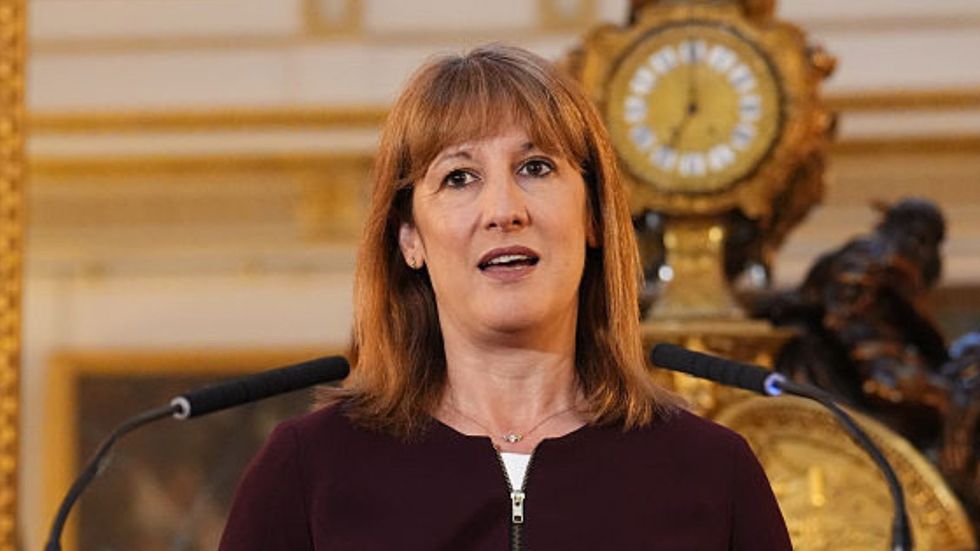
The warning comes just weeks before the Government’s autumn Budget in November, with the Chancellor facing calls to raise taxes further in order to balance the public finances
|GETTY
The OECD found that industrial production growth outpaced 2024’s average in most advanced economies during the first half of 2025.
Strong investment in technology sectors, particularly artificial intelligence (AI), also supported activity in the US and Japan.
But as front-loading eases, higher tariffs take effect and ongoing uncertainties weigh on investment and trade, economic growth is expected to slow.
Trade between the US and China, the world’s two largest economies, has fallen sharply in recent months, the OECD said.
Global GDP is expected to fall from 3.3 per cent in 2024 to 3.2 per cent in 2025 and 2.9 per cent in 2026.
The 2025 figure is 0.3 percentage points higher than the OECD’s forecast in June.
The OECD said governments should focus on the “need to strengthen sustainable economic growth while preserving adequate support for those in need”.
It also advised central banks to remain “vigilant” while continuing to cut interest rates where inflation is falling.
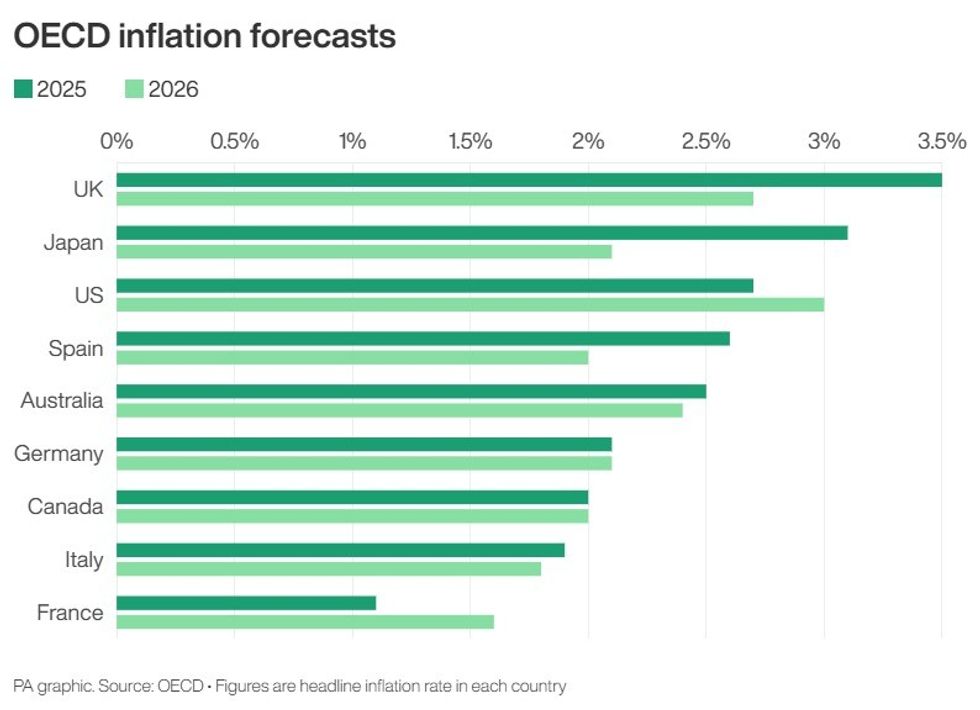
OECD inflation forecasts
|PA
This announcement comes after Rachel Reeves was warned she could be "losing the battle to inflation" as families face growing fears over rising prices.
The British Retail Consortium warned that food inflation could remain above five per cent well into 2026 if large retailers face higher business rates in the Autumn Budget.
The trade body said around 4,000 major retail sites, including supermarkets, could see higher tax bills if they fall under the proposed surtax for commercial properties valued over £500,000.
The BRC added that any extra costs would likely be passed on to consumers through higher prices.
More From GB News





